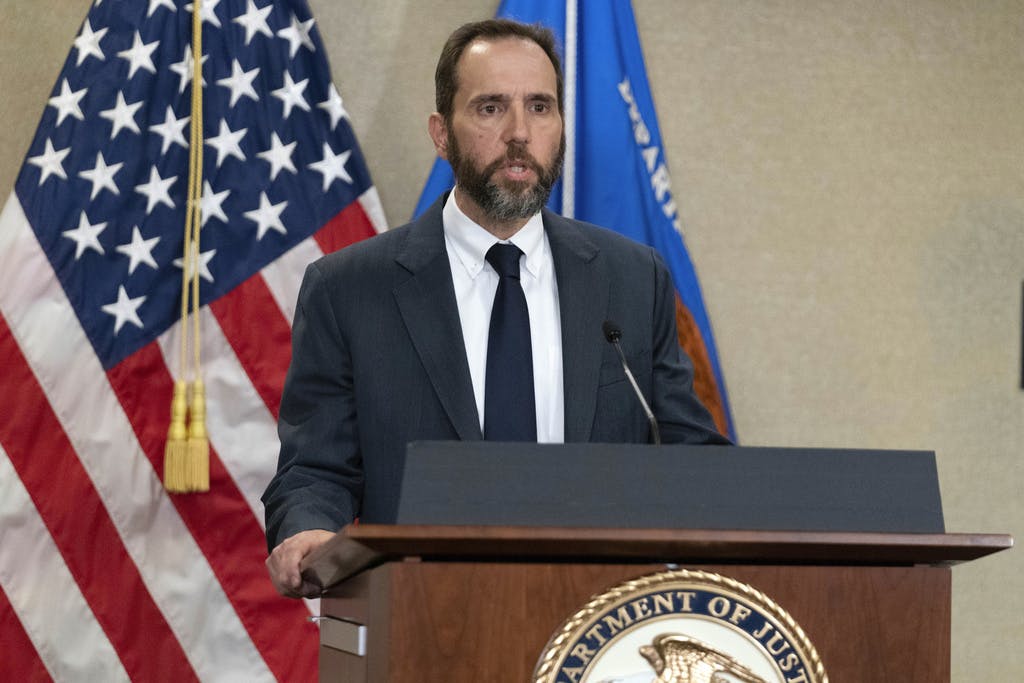Jack Smith Wins Again on ‘Secrecy’ – a Key to His Strategy To Convict Trump in Mar-a-Lago Documents Case
The special counsel scores another win with respect to redactions, but the right to a ‘public’ trial does not belong to him.

Special Counsel Jack Smith’s latest win — they are infrequent — before Judge Aileen Cannon in the Mar-a-Lago documents prosecution underscores the prosecutor’s passion for secrecy as he pushes forward in his quest to try one of the most highly anticipated cases in American history.
At issue is an upcoming filing from one of President Trump’s co-defendants, the valet Waltine Nauta. Mr. Smith asked for, and received, “extensive redactions” to that document before it was made public. These will comprise a sealed grand jury proceeding at the District of Columbia, the names of potential witnesses, and documents currently under seal.
This is not the first time that Mr. Smith has successfully worked for secrecy. In February, Judge Cannon granted Mr. Smith’s request that Mr. Nauta and another co-defendant, the maintenance employee Carlos De Oliveira, be denied access to the materials at Mar-a-Lago they are accused of shielding from investigators.
The jurist ruled that the “Special Counsel has made a sufficient showing that Defendant Nauta and De Oliveira’s personal review of the materials produced in classified discovery would not be ‘relevant and helpful’ to their defense.” In finding that Mr. Smith “carried his burden,” she will shield the documents from the eyes of Mr. Trump’s loyal — so far — aides de camp.
Judge Cannon explained: “Unlike the charges brought against Defendant Trump, the document-related charges against Defendants Nauta and De Oliveira do not require proof that they willfully retained documents ‘relating to the national defense.’” The employees are charged only with obstruction, not violating the Espionage Act.
The issue of secrecy has brought the relationship between Mr. Smith and Judge Cannon to a boil. The special counsel took the extraordinary measure of asking the judge to reconsider a ruling she made disclosing names of possible witnesses. He accused her of perpetrating a “manifest injustice.” Judge Cannon conceded the point rather than defend it before the United States Court of Appeals for the 11th Circuit.
The Mar-a-Lago case throws the issue of disclosure into sharp relief because it concerns documents that are themselves secret. The proceedings will be dictated by the Classified Information Procedures Act, which “balances the right of a criminal defendant with the right of the sovereign to know in advance of a potential threat from a criminal prosecution to its national security.”
CIPA mandates that some of the documents recovered from Mr. Trump’s Palm Beach manse are so secret that they can only be viewed at a Sensitive Compartmented Information Facility. There is one at Miami, which Mr. Trump has visited at least once. His lawyers argue that the requirement that he be present at the facility while also standing trial at New York violates his constitutional right to mount an effective defense.
The Sixth Amendment ordains that “in all criminal prosecutions, the accused shall enjoy the right to a speedy and public trial.” The Supreme Court, though, has held that another amendment, the First, gives the public and the press the right of access to court proceedings. In Richmond Newspapers, Inc. v. Virginia, from 1980, Chief Justice Burger wrote of the “unbroken, uncontradicted history” of public access to criminal trials.
The high court, in Estes v. Texas, ruled that the “purpose of the requirement of a public trial was to guarantee that the accused would be fairly dealt with and not unjustly condemned … secret tribunals were effective instruments of oppression.” The justices cite the Spanish Inquisition, the English Star Chamber, and the “French monarchy’s abuse of the lettre de cachet.”
Mr. Smith has sought to rebut the presumption of publicity by arguing that the redactions he seeks are “compelling” because they involve information relating to the national defense and witness security. If Mr. Trump ever faces a jury, and loses, the question of whether Judge Cannon was too solicitous to that argument could surface on appeal.

